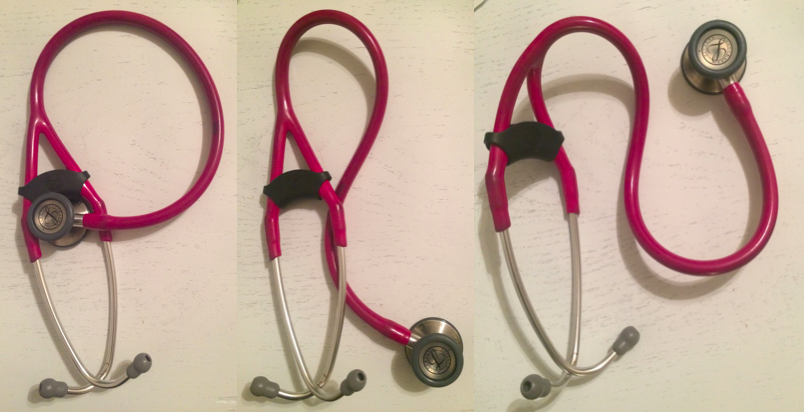It’s undeniable we celebrate weird things at the hospital. Things like bowel movements, being able to walk without assistance, and really big, long, straight veins. The day when patients’ Foley catheters come out also calls for celebration (except when patients are incontinent; then our little nursing hearts sink a little...)!
It was on such a day when a patient should have been celebrating his Foley catheter coming out that I learned an unexpected lesson about my emotional health.
“Please, can you take this catheter thing out?” my patient had begged all day.
Several hours into the shift, I heard from the doctor: the Foley catheter could be discontinued. I gathered supplies for wound care and for removing the catheter before knocking on the door.
“Good news!” I remarked cheerfully. “The catheter can come out!
Stock photo from Adobe
Surprisingly, the patient sighed deeply, as though disappointed. Although confused by his sudden change of heart, I proceeded to provide wound care, and the conversation turned to other things for a few minutes.
“Okay,” I finally said, “if you’re ready, let’s go ahead and take out the catheter now.”
“Do I have to take my pants off?” he mumbled as he started to roll his pajama pant legs up (up, instead of pulling his pants down).
“Um, yes.” Questions patients ask will never cease to amaze me. (Also, how anyone can wear pants over a catheter by choice will never cease to amaze me.)
“Okay. I just feel so humiliated…” More mumbling. Another deep sigh.
Finally, I understood his hesitancy. He was embarrassed and would rather wear uncomfortable, inconvenient pants than have his privates bared.
As nurses, often we forget it’s abnormal to see people’s bodies — all parts of their bodies. We wipe butts on a daily basis, put in catheters and take out catheters, and deal with every kind of bodily fluid you can imagine. Human anatomy is no big deal; it’s our job to assess it and make sure it’s functioning properly.
However, it is a big deal to most other people. Once I clued in to why this patient was balking at the chance for his number one request of the day to be granted, I was able to address his fears accordingly. Thirty seconds later, the catheter was out. Mission accomplished.
After washing my hands and stepping out into the hall, I began thinking about how this patient had considered discontinuing his Foley “humiliating.” His use of this specific word was actually shocking because to nurses there is nothing humiliating about having a catheter removed. In fact, to me the words “humiliating” and “catheter” have no reason to be in the same sentence.
Yet something about this patient’s words struck a chord with me. I knew that same hesitancy, the same feeling of being humiliated, the mumbling and the deep sighs — but not because of physical nakedness. Because of emotional nakedness.
Despite years of dealing with depression and some serious time spent in therapy, I still find it difficult to open up emotionally, even to my therapist. I still hate admitting my weaknesses and the natural anatomy of my feelings to anyone , myself included. What seemed ludicrous a moment ago when I was with a patient I now recognized in myself: I would rather wear uncomfortable, inconvenient masks than show others the fear and sadness I once believed were ugly and shameful. I would rather roll my pant legs up and acknowledge just a little ugliness than pull my pants completely down.
Yet in the same way healthcare workers in the hospital don’t think twice about seeing patients’ naked bodies, I finally realized mental healthcare workers probably don’t blink an eye at the raw, bare truth about people’s mental and emotional states. When something isn’t working right, someone has to look at it. Nakedness is simply part of our jobs.
With this perspective, I’m learning to be more intentional about overcoming my habit of stalling before getting to the heart of my struggles when I show up for a counseling appointment or pick up the phone to call a friend; I’m learning to try to pull down my emotional pants and check my shame at the door.
Is stripping emotionally vulnerable? Sure. Should we be careful whom we share our emotional and mental nakedness with? Of course. (Wouldn’t want to moon anyone by oversharing inappropriately!) Should we be ashamed and humiliated by emotional nakedness? I’m starting to understand the answer is no.
As a nurse, my job may include physical nakedness. As a human, it will always include emotional nakedness. Because of this encounter at the bedside, I’ve decided: it’s time to stop fighting it and strip right down to emotional nakedness.







